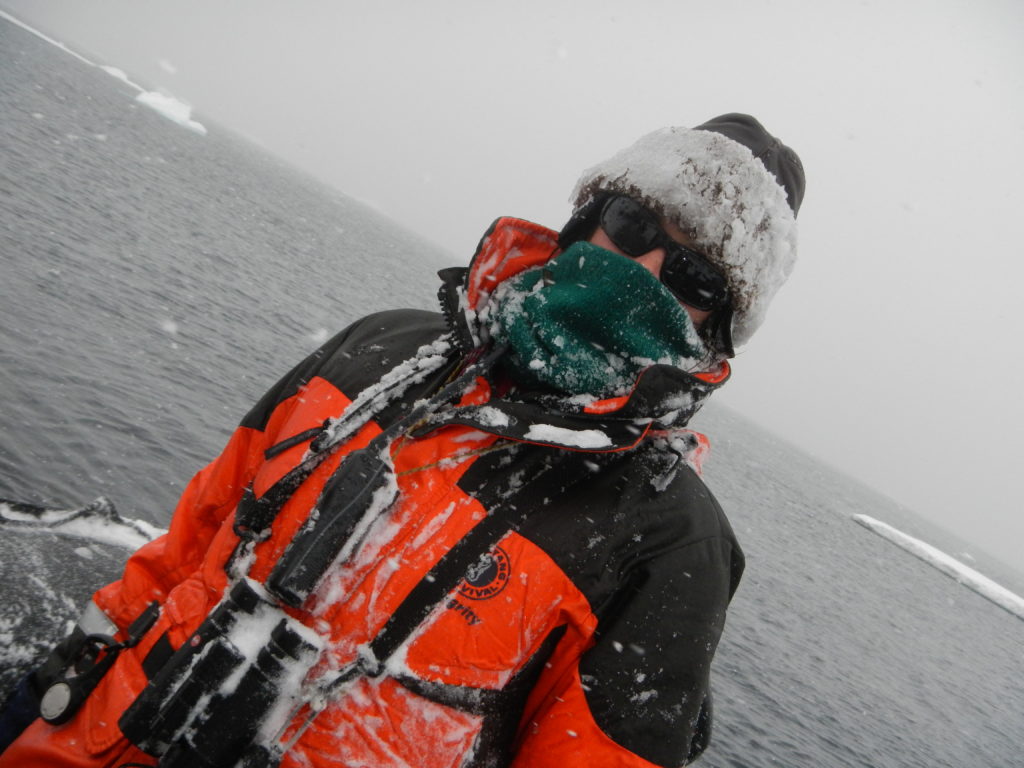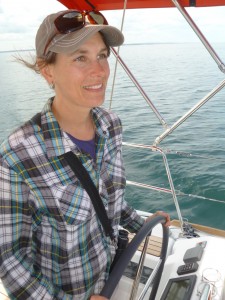
Sometimes, on an airplane, I wonder if the person beside me thinks I’m a pathological liar after they ask, “What do you do?” and I begin to answer. Or fumble toward answering.
Sometimes I want to lie.
Do you lie?
Sometimes I do.
By omission, if nothing else. Too many answers when they want one. I work on ships. I am run a press. I teach. I do website design. And then the real answer, which to many is strange and either provokes awkward silence or too many questions: I am a poet and a naturalist.
At the core of my being, that reply rings and resounds. Poet and naturalist are callings I heed. Passions I am grateful to follow. They are ways of moving through the world. Words for how I navigate. They are not careers.
*
A career is paystubs and (hopefully) promotions. It is marked progress or at least marked time. It is commerce.
Being a naturalist is not commerce. It is carefully observing the world without humans at its center. You might get paid to lead a walk or give a talk, but being a naturalist constitutes more than that calendared moment. Being a poet is the same.
Poetry is not commerce. Sometimes, a little money might come from a poem. Sometimes. A little. But not often.
And that is our freedom, as poets. The poems won’t pay the rent. Their value is reckoned differently. Even after they go out into the world, they are ours. And we can allow whim and art and passion to make them. For most poets, there is no “brand” to protect for market-driven reasons, a narrowing of expression which would hinder our making with self-consciousness. The exploration and the experimentation of each new poem is the thing that makes us poets.
Career: v. move swiftly and in an uncontrolled way in a specified direction. “The car careered across the road and went through a hedge.”
If you’re like me, you’d probably say “careened.” The car careened around a corner.
In North America, that’s become an acceptable usage of the verb. But to careen is more truly to turn (a ship) on its side for cleaning, caulking, or repair. Where I live, we see ships careened in the summer. Wooden hulks coaxed to float by annual patching.
*
A boat out of the water is a vulnerable and strange thing. It keens with the weight of its careening. It does more than list. It leans. And it leans hard—maybe against a piling driven into the sand to hold it upright when the water pulls away.
Meander, when I was younger, was one of my favorite words. I loved the way my mouth had to work around it. Now, it sounds a little whiny to me, mewling, and I don’t use it in poems.
I would be careened without poems, without the deliberate observation, the delighted surprise that springs from being open to what emerges, that comes from both writing and being a naturalist. I would lean and break. I would be a hulk on the shore.
I career between these selves, these lives.
*
Odd hybrids have always held power. Minotaur, selkie, siyokoy, Anubis, angel, jackalope.
“In the 1930s, Douglas Herrick and his brother, hunters with taxidermy skills, popularized the American jackalope by grafting deer antlers onto a jackrabbit carcass and selling the combination to a local hotel in Douglas, Wyoming.”
Praise the jackalope. Praise the strange beauty of two lives deliberately brought together. And the secrets and omissions that conjoining must necessarily entail.
Secrets are held within us, alive but invisible. Some, of course, can be horrible and dangerous. But not all. Some fuel us.
When I am speaking as a poet, talking to students about image or line, the secret of my naturalist life pulses within me. I am comforted by its warmth. My shoulders hold an echo of the weight of my binocular strap and my eyes a squint of light on water. I need the power of that other, more physical life to buoy me when I flounder in the world of words.
When I am working as a naturalist, searching for animals or coaxing people to bend down and look at feeding barnacles, poems sing in me. Lines by other poets, phrases that might become a poem of my own. I don’t share them. I joke with the crew, drive the boat, do head-counts, take data. I don’t want to talk about writing poems. I want that buzz in my pocket, that secret gathering power in its unspoken form.
Sometimes, though, shuttling between poet-self and naturalist-self leaves me disoriented. As if I’m too much in limbo, liminal, always becoming and never there.
*
Dedicating oneself to two worlds can mean slower progress in each. There is a benefit to laser focus, to sustained and dedicated effort in one field. But not all of us are wired for that. Some of us struggle and itch if we have to offer only one answer to the question, “What do you do?”
I want to honor the power and necessity of that non-singularity. The energy of that pendulum swing between ways of seeing, ways of engaging. Poetry and plumbing. Poetry and psychoanalysis. Poetry and parenthood.
Many writers (myself included, at least partly, for the past four years) earn a living by teaching writing. But not all writers are in the academy, and not all writers want to be in the academy. Some hold writing apart from whatever they do to make money, keep it separate from their working lives, free to range and explore unseen by supervisors or colleagues. Free to rebel and speak against as well as for.
It’s harder, sometimes, to find these writers. It’s harder for them to take time to travel and give readings; they don’t have students who go out and share their work. But their books are out there to be found. Their voices sing.
Writers who have wandered, whether it’s into teaching or doctoring or carpentry, know that I claim you as kin. We won’t have “careers” as writers, but we will career, and the energy our non-writing life—its vocabulary and systems and specific conundrums—will make the words we explore vital and strange. We will have lives as writers. As jackalopes, as secret agents of words.
